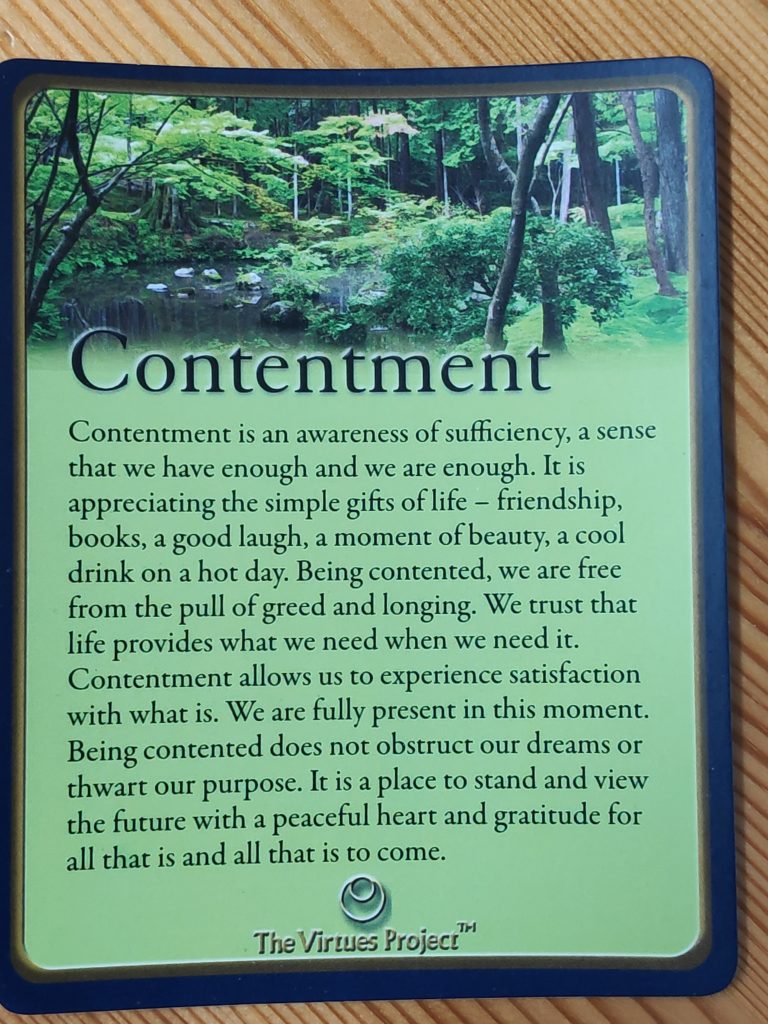For me, contentment is being happy with how I am and what I have already achieved. Being aware of this contentment is important for good mental health. This does not mean that one should not strive to improve either oneself or one’s living conditions.
My husband and I have created a good life for ourselves. We worked as teachers for many years in Norway, in a profession that I have always felt was useful for the society we live in. We raised two children that have become beautiful adults, who are also concerned about the welfare of people around them. We own a house and a car. We live a moderate life in our retirement, not needing a lot of new things around us, although we enjoy improving our house.
I am content with what I have accomplished in my 70 years on this planet but it is good to remember what one has achieved and be thankful that one has had a good life, with reasonably good health. I will continue to try new things and enjoy life.

“Contentment is an awareness of sufficiency, a sense that we have enough and we are enough. It is appreciating the simple gifts of life – friendship, books, a good laugh, a moment of beauty, a cool drink on a hot day. Being contented we are free from the pull of greed and longing. We trust that life provides what we need when we need it. Contentment allows us to experience satisfaction with what is. We are fully present in this moment. Being contented does not obstruct our dreams or thwart our purpose. It is a place to stand and view the future with a peaceful heart and gratitude for all that is and all that is to come.”
When I practice Contentment, I
- allow myself to be satisfied and grateful
- trust that I am enough
- enjoy where I am and what I have
- resist the craving for more
- am fully alive to the present moment
- relax in the trust that life is good.
